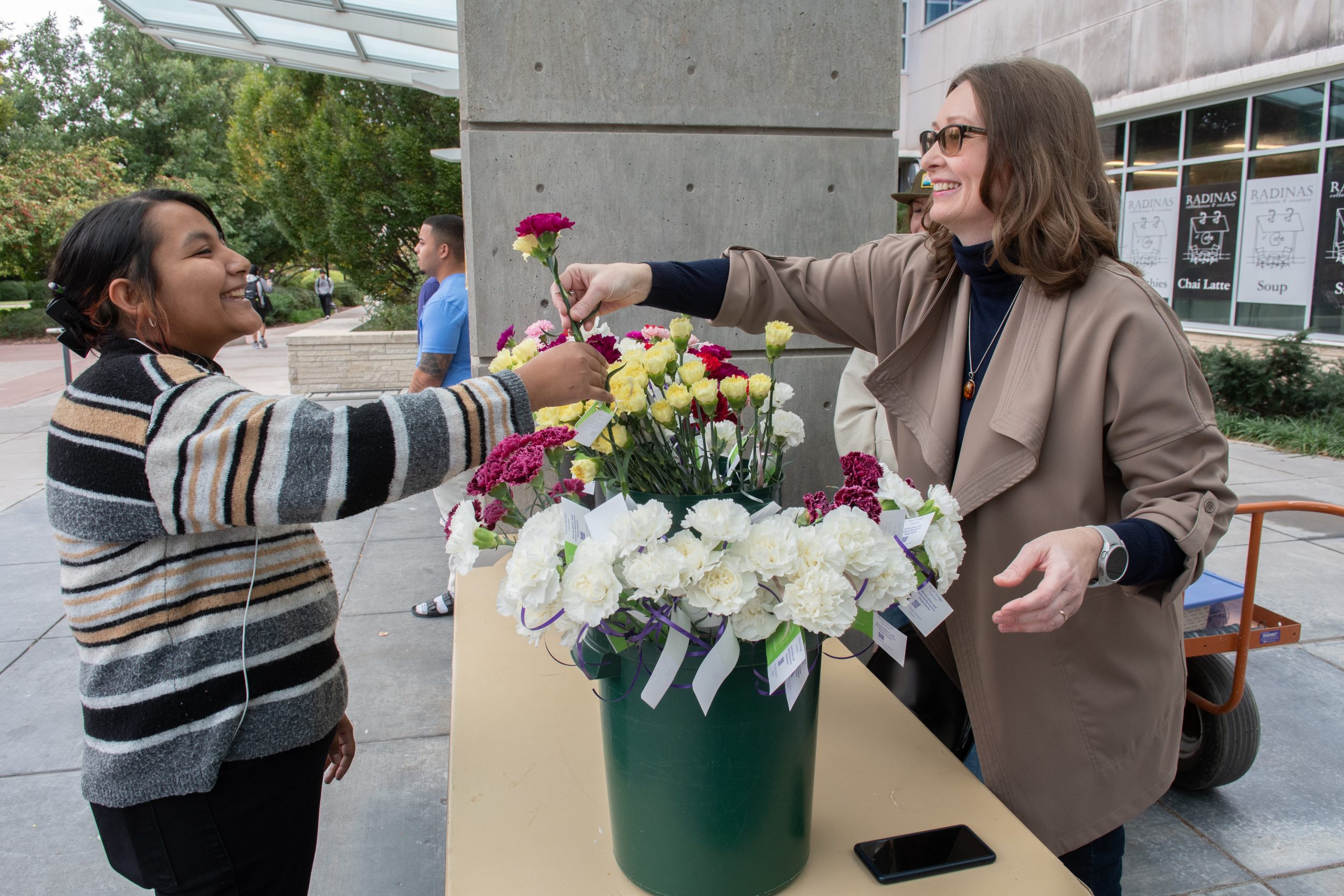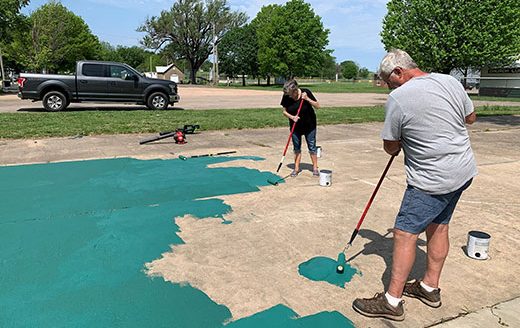Sheshukova promotes ‘Petal it Forward’ during national event
It seemed like such a simple gesture.
But the two carnations—one pink and one red—that Mia Kingsley received from Irina Sheshukova recently were much more than that.
“It’s a well-known fact that flowers make people happy,” said Sheshukova, an instructor of floral design in Kansas State University’s Department of Horticulture and Natural Resources.
Sheshukova and a few of her students recently planted themselves near K-State’s student union to spread cheer to passers-by during National Petal it Forward Day, promoted across the country by the Society of American Florists.
In addition to keeping a flower for herself, Kingsley was encouraged to give the other one to someone else. Spread the love, she was told.
“Random acts of kindness should be more common than they are,” said Kingsley, a K-State freshman from Olpe, Kansas. “It’s neat that we’re trying to encourage people by getting one (flower) and giving one. It’s so cool that something so small can make a big impact on people.”
Sheshukova said several research studies indicate the larger impact that flowers may have. Researchers at Rutgers University have shown scientifically that flowers have an immediate impact on happiness, a long-term positive impact on moods, and help to make intimate connections.
More recent studies in the Journal of Environmental Horticulture concluded that participants receiving plants experience such emotional and mental health benefits as:
- Reduced anxiety and stress.
- Decreased depression.
- Enhanced memory retention.
- Greater happiness and life satisfaction.
- Reduced effects of dementia.
- Improved self-esteem.
The physiological benefits include better sleep, decreased diabetes, enhanced immunity, improved digestion, decreased allergies, and more.
“The research is really interesting,” said Kenzie Liby, a K-State student and arts coach with K-State’s Union Program Council, which co-hosted the event. “I learned last year that most men don’t receive flowers until their funeral. That’s a shocking fact to me. I feel like just little things we do for others here and there can change people’s lives.”
She adds: “There are a lot of reasons to always be kind to people, but not a lot of people do it. I think it’s important to take the time to go out and do it.”
Sheshukova said the approaching holiday season is another opportunity to make the season more bright for others.
“”Nowadays, flowers are available throughout the year,” she said. “Flowers give a sense of connection to nature and emotional connection to each other. Flowers are sentimental gifts that help create memories and brighten any occasion or holiday.”
Sheshukova’s K-State classes draw about 80 students each semester, many of them she said from more stressful majors on campus seeking a release from hours of studies. Other students are more focused on the floral industry, taking advanced classes with an eye toward a career.
“I think a lot of people appreciate flowers,” Sheshukova said. “They’re beautiful and they smell good. I like the reactions of people when you give them a flower; I’ve had them tell me that I just made their day. We are trying to show the appreciation of flowers as well as the appreciation of giving and receiving flowers.”
Chloe Crooks, a K-State freshman from St. Joseph, Missouri, came with Kingsley to Sheshukova’s Petal it Forward event. Asked about the second flower she received, she said: “If I see someone who is a little bit down, I may give them a flower.”




